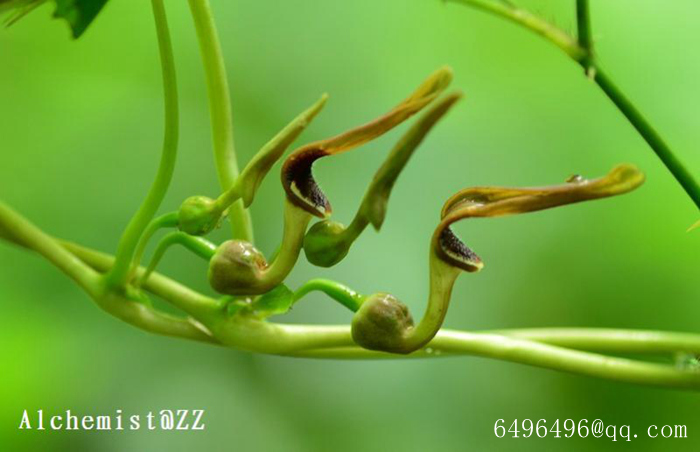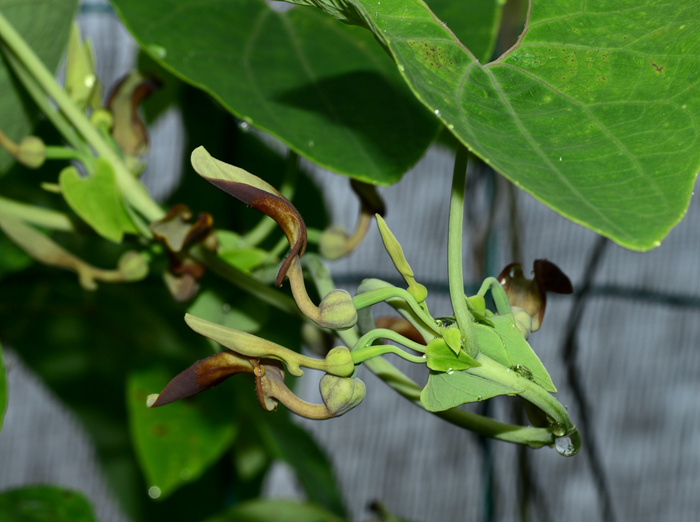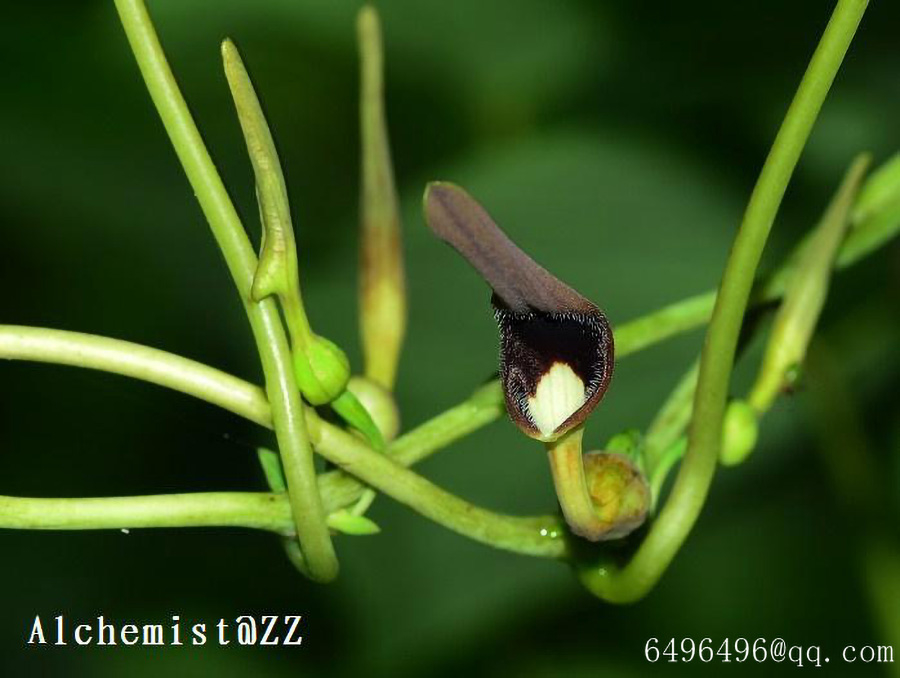管花马兜铃 Aristolochia tubiflora
- Scientific Name: Aristolochia tubiflora Dunn
- Ref: J. Linn. Soc., Bot. 38:364. 1908
- Synonym: Aristolochia longilinqua C.Y.Cheng & W.Yu
- English Common Name: tube-flower aristolochia
- Chinese Common Name: 管花马兜铃 guǎnhuā mǎdōulíng, 辟蛇雷 pìshéléi, 逼血雷 bīxuèléi
- Family: Aristolochiaceae
- Genus: Aristolochia
- Distribution: Forests, moist mountain slopes; 100-1700 m. Anhui, Fujian, Gansu, Guangdong, Guangxi, Guizhou, Henan, Hubei, Hunan, Jiangxi, Sichuan, Zhejiang.
- Photo: 06/15/2013, Mt. Tianmu, Zhejiang
Herbs twining; roots linear or terete. Stems terete, striate, glabrous; branchlets and petiole with red juice when broken. Petiole 2-10 cm, glabrous; leaf blade ovate-cordate, 3-15 × 3-16 cm, papery, densely punctate, both surfaces glabrous, rarely abaxially pubescent, veins palmate, 3 pairs from base, often red when dry, base cordate, sinus 2-4 cm deep, apex obtuse. Flowers axillary, solitary or paired. Peduncle ascending, 1-2 cm, glabrous; bractlets ovate, 3-8 × 2-4 mm, inserted near base of peduncle. Calyx dark purple; tube rectilinear, abaxially glabrous; utricle globose, ca. 5 mm in diam., sessile; tube 4-5 × 1-2 mm; limb unilateral, ligulate, ovate-oblong, 0.8-1 × 0.4-0.5 cm, apex obtuse or emarginate and apiculate. Anthers elliptic, 0.3-0.4 mm. Gynostemium 6-lobed. Capsule cylindric, ca. 2.5 × 1.5 cm, dehiscing acropetally. Seeds ovoid or ovoid-deltoid, ca. 4 × 3.5 mm. Fl. Apr-Aug, fr. Oct-Dec. (Flora of China)

06/15/2013, Mt. Tianmu, Zhejiang

05/08/2016, Lishui, Zhejiang
